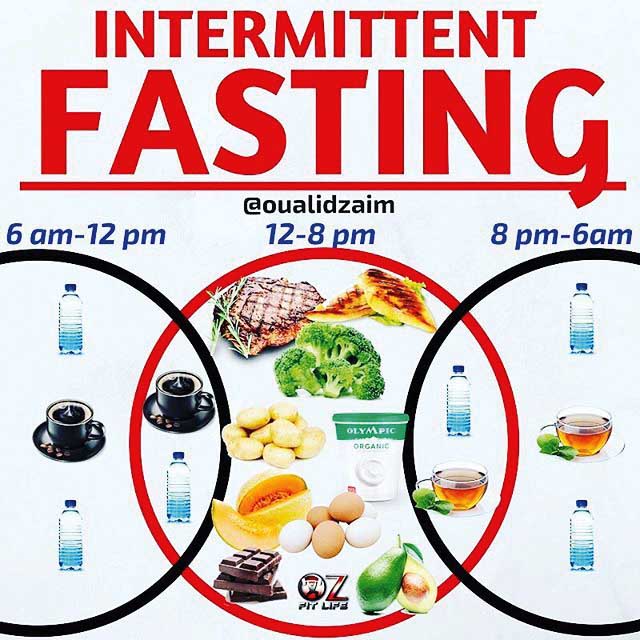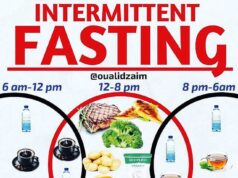By Beatrice Nakibuuka
Living a healthy life is a combination of good nutrition and adequate exercise.
While this is certainly true, there are other healthy habits we can consider regarding our relationships with food and healthy living. One of those habits is fasting.
Fasting has become a very popular way to improve metabolism, cleansing the body, boosting cognitive performance, supporting weight loss, and general wellbeing.
Many experts recommend a one day fast as a great way to improve your health yet stretching to longer times can deplete vitamins and minerals especially for people with chronic medical conditions.
About 12 to 18 hours of intermittent fasting can also be helpful but some people do an occasional 24-hour fast when they feel comfortable doing so.
Keeping hydrated with water intake is always allowed in any safe fasting program.

The benefits
Fasting, according to Ivan Philip Baguma a nutritionist at Nella Organics Kampala, has been associated with several health benefits such as weight loss, improved blood sugar control, enhanced heart health, decreased inflammation and better brain function.
The abstinence from all foods and drinks for a set period of time can be done over 24 hours or done intermittently cycling between periods of eating and fasting ranging from a few hours to a few days.
Some people may opt for water fasting, juice fasting, partial fasting or calorie- restriction but this should be coupled with a nutritious diet and a healthy lifestyle.
If you have diabetes, fasting may cause complications. You, therefore, need to consult your diabetologist before taking this action.
He says: “When we fast, the body does not have the usual access to glucose. This forces the cells to resort to other means and materials to produce energy in the form of sugar. The liver helps by converting non-carbohydrate materials like lactate, amino acids, and fats into glucose energy.
“The amount of energy the body burns becomes more efficient, thereby lowering the heart rate and blood pressure.”
Later into the fasting cycle, the body starts to burn stored fat as its primary power source in a process known as ketosis which is ideal for weight loss and balancing of blood sugar levels.
Fasting increases growth hormone secretion, which is vital for growth, metabolism, weight loss, and muscle strength.
It may also boost brain function and prevent neurodegenerative disorders.

Intermittent fasting
Intermittent fasting is one of the simple ways to get the benefits of a fast without feeling like you are deprived of food.
When you fast, your body is able to burn fat as fuel and the best way is for you to eat your last meal by 7pm and in the morning, you can first take warm water.
By the time you will eat your breakfast, you will have given 12 hours of rest to your digestive system which is a good reset.
If you have no medical problem, you can extend this up to 16 hours but do this occasionally and not daily.
“Although intermittent fasting has taken over many dieting trends and an alternative for weight loss, the practice should be occasional because according to research, skipping meals for a long time has negative mental and physical consequences,” he says.
For those on weight loss journey, Baguma recommends that you consult with a registered dietitian or nutritionist who will help you make a meal plan that will help you lose weight or suggest an intermittent fasting program that is adequate to cover your nutritional needs.
Fasting may not be suitable for everyone and may cause side effects. For instance, if you have diabetes, fasting can lead to spikes and crashes in your blood sugar levels, which could be dangerous.
It is, therefore, important to note that fasting is not generally recommended without medical supervision for older adults, adolescents, people with underweight or people undergoing cancer treatment.

Dos and don’ts of fasting
According to Amanda Twebaze, a nutritionist at Human Mechanic Physiotherapy, Naguru, while breaking your fast, there is no point pushing through a tough fast and then undoing all your hard work by going wild with enormous, highly processed, calorie-filled foods.
She remarks that it is important to choose a healthy diet focusing on natural, unprocessed foods and eat slowly, chewing your food properly and listening to your body; stop eating when you feel satisfied but not full.
“It is important to break a fast in a more systematic way so that the digestive system is not overwhelmed. This therefore requires a more gradual approach to re-introducing foods to your system.
“It is best to start with foods that are softer or more liquid in consistency, warmer in temperature, smaller in quantity and also easy to digest,” she says.
Twebaze adds: “Don’t eat too much food at one go. Eat a little food at a time until a few hours have passed and you feel your stomach is now ready to have more regular amounts of food.
“Don’t drink very cold things as you break your fast. Warm drinks have a more soothing effect on a fragile stomach that has just got through a fasting phase.”
Twebaze recommends starting with liquids like warm water, warm tea, warm herbal tea and then you can head on to fluids like porridges, vegetable or fruit smoothies.
From the fluids, the stomach will then be ready to have solid foods.
Also, avoid eating foods that might take longer to digest. These include many animal protein foods such as beef.
Eat foods that move more swiftly through the digestive tract and are easily broken down. These could include plant proteins such as mushroom, lentils, among others.
Eat small foods that are packed with nutrients like dried fruits such as raisins, dried mango, chia seeds and dates.
These are good solid foods to start with before the main bigger meals.
“Avoid fatty foods especially solid fat like that on meats, instead have more healthy oil versions of fat like olive oil in your meals to avoid stomach discomfort and irritated stomach side effects like diarrhoea or bloating,” she says.
Foods you need
There are storable forms of carbohydrates and fat in the body in muscle and liver glycogen and fat tissue, the only protein storage is skeletal muscle.
Therefore, when fasting, the body needs more proteins and prolonged fasting can break down muscle tissue because the body constantly needs protein to sustain normal life functions.
Eggs
Eggs contain a number of essential amino acids, vitamins and minerals. A hard boiled chicken egg for instance contains proteins, calories, fat, calcium, magnesium, potassium, phosphorus, zinc, iron, and selenium and sodium and negligible amounts of carbohydrates and sugar making it a perfect choice for breaking your fast.
It contains nutrients that support eye health, antioxidants that reduce inflammation.
Bone broth
Bone broth may not be the most satisfying food to break a fast, but is great because the proteins contained therein are already partially broken down, reducing the work the body has to do on its own.
“It is a rich source of electrolytes like potassium, sodium, magnesium, and calcium that are good for maintaining fluid balance, conducting nerve impulses, and initiating the contraction and relaxation of muscles.
“They also improve hydration and are required for the digestion and absorption of nutrients like carbohydrates. The broth also contains collagen which is good for cartilage, tendons, muscles, teeth and skin,” Twebaze says.

Fruits
Most people end up being dehydrated after a fast, but water-filled fruits such as watermelon contain high amounts of water to quench your thirst and rehydrate your body.
Fruits are rich sources of vitamins, minerals, natural sugars and fibre which help you replenish at the end of a fast.
The water and fibre content in fruits offer a slow and steadier release of glucose into the bloodstream to help limit the chance of binge feeding that would happen with processed foods.
“Avocado is very satisfying and is a rich source of monounsaturated fats, dietary fiber, potassium, magnesium, and copper, and vitamins B, C, E, and K. All these are essential nutrients after fasting,” Twebaze says.
Fermented foods
During fermentation, the natural bacteria in the food break down the sugars and produce lactic acid. This makes the fermented foods more digestible and a great choice for breaking your fast.
They are also a natural source of healthy bacteria in your gut and reduce inflammation in the digestive tract. These include yogurt, kefir, kimchi, sauerkraut, tempeh, and pickled vegetables.
Other foods can include cooked vegetables, fish and bananas. “If you decide to try fasting, be sure to stay well-hydrated and fill your diet with nutrient-dense foods during your eating periods to maximize the potential health benefits,” Baguma says.





















